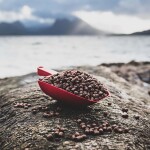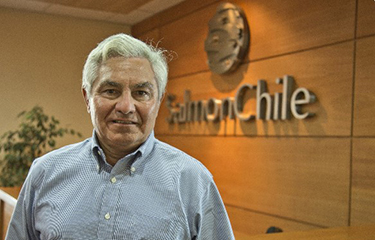Chile’s constitutional convention process, mandated by the citizens to define a new national charter, has included some proposals deemed by SalmonChile to be a threat to the country’s salmon-farming industry.
In a national referendum in October 2020, 78 percent of Chilean citizens voted in favor of a new constitution, to be drawn up by a body elected by popular vote. Chile’s constitutional convention has been in session since July 2021 to write the new national charter, and the final document proposed will be approved or rejected in a national voted slated for 4 September.
Of particular concern to SalmonChile in the proposed verbiage in the new constitutional working document is the possible closure of protected areas to salmon farming. According to industry calculations, about 30 percent of Chile's farmed salmon production comes from concessions located in protected areas. Some of the protected areas are located in the ancestral territories of Indigenous peoples, who would be granted new rights in managing their own lands and communities under the proposed new constitution.
“This is a very sensitive issue. Today the industry operates in national reserves in areas suitable for aquaculture and that were granted by the state for the industry to develop,” SalmonChile President Arturo Clément said. “We are there because they gave us those concessions before they were a park, and we agree that a solution has to be sought. The issue is more complex in reserves that are multipurpose areas, where there are conservation and productive activities."
Exactly how Indigenous rights might be altered so as to determine whether salmon farming occurs in protect areas remains insufficiently covered in the proposed document, which could lead to future instability, Clément said. However, heacknowledgedthere are some salmon concessions located in conservation areas in national parks that may have to be be relocated.
"It is unclear what the indigenous peoples’ attributions will be or what the relationship will be between those of us who operate in the area that supposedly corresponds to those territories,” Clément said.
A recent National Geographic Pristine Seas expedition filmed a documentary in partnership with members of the Kawésqar and Yagán indigenous groups in southern Chile’s Patagonian region of Magallanes, advocating for the protection of a large portion of coastline from further commercial salmon-farming development.
Apart from the constitutional process, Chilean President Gabriel Boric has said he will look to replace the country’s existing fishing laws and strengthen environmental stewardship in the ocean, particularly in protected areas, including a possible moratorium on the farmed salmon sector that would halt its expansion in the country.
Clément applauded Boric's focus on environmental stewardship but called for a sensible approach to impairing the salmon-farming industry's growth, considering its importance to the Chilean economy.Chile's salmon farming sector is valued a USD 5.2 billion (EUR 4.9 billion) a year, with much of its impact landing in Chile's rural areas.
“We think it is very positive that this new constitution values these matters more than in the past, but we see a worrying bias with an extremely environmentalist focus,” he said. “We believe that there has to be an adequate balance and there has to be much greater environmental care than in the past, but we also have to reconcile that care with economic development.”
There are parts of the proposed constitution calling for environmental restoration, but they are “ambiguous,” which could lead to different interpretations from different actors, Clément said.
“What we are looking for are clear and long-term public policies because this is a long-term industry. As such, to the extent that there is little clarity, the salmon sector may face complexities in the future,” Clément said.
In the meantime, Chile has seen sustained increased demand for its farmed salmon. In the first five months of the year, salmon shipments totaled USD 2.55 billion (EUR 2.42 billion), 31.8 percent higher than the same period in 2021, when they reached USD 1.94 billion (EUR 1.84 billion), according to figures from Chile's Central Bank.
Clément said the positive performance was due to sustained demand from Chile’s three primary salmon markets: the United States, Brazil, and Japan. He also credited a recovery of the global hotel, restaurant, and catering (HORECA) sector, and the industry's ability to relocate shipments originally destined to China and Russia – two markets he said have seen “complications.”
Despite increased feed costs resulting from the Russia-Ukraine conflict, Clément predicted that this year the industry will surpass the 2021 mark of USD 5.2 billion (EUR 4.9 billion) in exports.
The rapid economic changes taking place in Chile and globally make it imperative for Chile's regulators to a long-term view of salmon farming, Clément said.
“We have to consider a global perspective on how we develop more-sustainable salmon farming in the future, and that means continuing in this strategy that we have adopted in the last few years in environmental terms,” Clément said. “We have to talk with the authorities and hopefully have an aquaculture development policy that permits us – not only salmon farmers but all those who want to develop aquaculture activities – to have a long-term vision.”
Photo courtesy of SalmonChile







